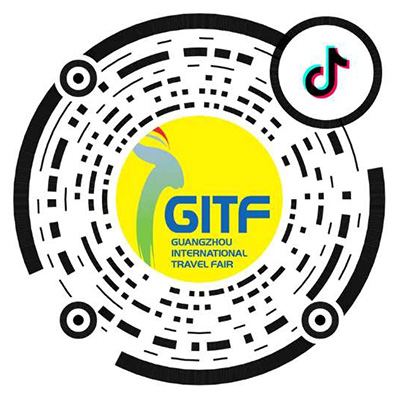
Forum Review | Reinventing Outbound Tourism, Building a New Paradigm for Future Tourism through Value Co-Creation
2025-05-30
As an important segment of the tourism industry, outbound tourism is not only an important witness to the development of global tourism, but also a platform for breaking through boundaries, connecting the world and exploring the common values of global humanity. As outbound tourism affects the whole world and usually contains the codes of future tourism development trends, the topic of outbound tourism is definitely the C-suite topic that must be discussed every year at the Guangzhou International Travel Fair (GITF), which has the longest history in China.
However, when the global situation is turbulent, the economy is changing, and people's needs are undergoing profound changes, how will outbound travel be reinvented? With the theme of “Reinventing Outbound Tourism: Sustainable Connections and Value Creation” - from eco-friendly to cultural symbiosis, this year's China Outbound Tourism Forum will bring together the industry's top minds to address the industry's pain points and gain insights into future opportunities.
The forum has invited international representatives from PATA, UN Tourism, COTRI, WTCF, EU-China Commission and others to brainstorm on the following topics The brainstorming sessions will focus on topics such as “Practical Paths to Sustainable Outbound Tourism”, “Deep Cultural Connections and the Construction of Regional Tourism Ecosystems”, and how to “Respond to Changing Customer Needs and Global Challenges in a Meaningful Way”. “The panel discussed how to promote the further development of outbound tourism in China.
In the first quarter of 2025, the nation's immigration management agencies checked a total of 163 million people entering and leaving the country, up 15.3 percent year-on-year. This good start also bodes well for the future of outbound tourism.
01
Tackling the Triple Challenge
Global Tourism Confronts the Issues
When Prof. Wolfgang Georg Arlt, an old friend of GITF and CEO of China Outbound Tourism Research Institute (COTRI), appeared at the venue to open the China Outbound Tourism Forum again, he said, amidst loud applause, that “the China Outbound Tourism Forum is already part of the Guangzhou International Tourism Exhibition. ”
China Outbound Tourism Forum has always been a forum that doesn't talk about empty talk, but rather confronts the problems right from the start. Peter Semone, President of the Asia Pacific Tourism Association (APTA), has prompted the industry to think about the tragedy of the dodo bird's extinction: “Over-exploitation and complacency can erase in an instant what we once thought was timeless. In the face of three major challenges - climate change, technological disruption and geopolitical instability - the tourism industry, like the dodo, will end up with unemployed travelers.” He said that while tourism has recovered to pre-epidemic levels, it remains extremely vulnerable, and that over-tourism, unsustainable development and unseen burdens need to force the tourism industry to fundamentally rethink the way tourism is designed and delivered.
As a result, the way tourism development is evaluated may also need to be reshaped. Efforts are currently spent on counting tourists everywhere, but Peter Semone believes that there needs to be a better way to measure tourism and to measure its impact: “We need to focus more on the visitability of tourism, we don't just need to attract tourists, we need to make sure that the quality of life of the local population is maintained as well. There needs to be a more in-depth approach so that we can develop meaningful tourism.” He sees a huge opportunity in the development of outbound tourism in China, with a very bright future in terms of visitor numbers alone, but believes that a change in mindset is needed to ensure that tourism is meaningful to local people, and that it does a good job of preserving the local environment as well as the lives of the people living there.
We stand at a crossroads in the transformation of tourism. There is a need to shift away from an assessment system centered on visitor numbers and to establish a new development paradigm that “prioritizes livability”. When exploring the Chinese market, it is important to understand the needs of Chinese tourists and to ensure that tourism development is harmonized with the sustainable development of local communities.
The Forum's keynote address by Zoritsa Urosevic, Executive Director of the United Nations Tourism Organization (UNWTO), also confirmed the transformation of the tourism industry from another perspective. She argued that tourism is becoming more accountable, inclusive and resilient: “We need to send a strong message - tourism is not just about recovery, it's about transformation, and that transformation has to be based on precision, science, basic data and bold, concerted action, and we are already making taking firm steps in that direction.” Transformation, she argued, means valuing tourism's role in the climate crisis and unlocking its potential to be part of the solution. She also cited a recent US survey that showed 73% of tourists want their spending to support the local economy, and the surge in interest in rural and nature destinations in the aftermath of the outbreak, which has led to the launch of the UNWTO's Rural Tourism Development Initiative (RTDI) and flagship program, the Best of Rural Tourism Initiative (BRTI). “The Best of Rural Tourism Program, with nearly 900 villages applying since 2021, 184 of which have been recognized for their commitment to tourism as a force for well-being. She argued that China had many such “best villages for tourism”, which were not just remote areas on a map, but living proof that tourism could bring prosperity without compromise.
From waste reduction in hotels and restaurants to the revitalization of rural tourism, the tourism industry needs to be transformed with the five pillars of measurement, decarbonization, regeneration, collaboration and financing, so that sustainability goes from being a luxury to a new normal for the benefit of the world.
As an in-depth observer of China's outbound tourism, Prof. Wolfgang Georg Arlt, CEO of the China Outbound Tourism Research Institute (COTRI), has a deep understanding of the changes brought about by global tourism challenges. According to the latest data from his research organization, China's outbound travel reached 33.5 million in the first quarter of 2025, up 24% year-on-year, with Hong Kong and Macao accounting for nearly half of the total, and Asia-Pacific destinations such as Vietnam and Japan performing brightly, but Thailand slumped more than 30% due to multiple factors. Long-distance European and American travel growth is weak, Germany even negative growth, domestic travel and short-distance travel around the new trend.
He listed seven major challenges facing the global tourism industry: diversification of demand, demographic changes (low fertility, ageing), economic slowdown, geopolitical tensions, substitution of AI technology, the threat of climate change, and a shift in investment towards sustainable projects. He said that addressing the challenges would require multiple collaborations: developing niche destinations; staggered tourism products and segmented services; Chinese technological strengths that could inform traditional European tourism; and advocating for the deeper integration of tourism with the international sustainable development goals. He also emphasized that “the most important thing for China's outbound tourism is that we need to change.” He said that for tourism to be consistently successful, it must be part of sustainable tourism development, and also need to embrace the SDGs, the International Development Goals and environmental social and governance approaches.
The tourism industry is facing the transformation of the experience economy, with travelers preferring deep cultural interaction and “meaningful travel”, while addressing seven key challenges, including ageing populations, geopolitical conflicts, AI substitution and climate change. This will require the development of niche destinations, segmented services and the integration of the Sustainable Development Goals, as well as technology-enabled innovations that will enable the global tourism industry to adapt to the new normal.
02
Sustainable Tourism Becomes a Consensus
Leading industry transformation with a framework
The industry has been searching for ways to address the difficulties and challenges in the development of global tourism. Undoubtedly, “sustainable tourism” is a golden key to the long-term development of global tourism. So, what is the practical path?
Moderated by Richard Matuzevich, International Relations Manager of the World Tourism Cities Federation (WTCF), a roundtable discussion on “Pathways to Sustainable Outbound Tourism” has begun, in which an idea of transforming the industry under the framework of a global vision and cooperation has surfaced. Nepal and Sri Lanka, as emerging tourist destinations, may become samples to promote the practice.
Dr. Peter Jeng, Deputy Secretary General of the CEC, believes that sustainable tourism is not only a trend in Asia, but also a global trend: “I think that combining well-being and tourism will give us more opportunities in the future to be able to attract more tourists from China.”
Sri Lanka and Nepal are two fresh destinations for Chinese tourists. Buddhika Hewawasam, Chairman of the Sri Lanka Tourism Promotion Board, said Sri Lanka has very strong ties with China and a very deep friendship with China: “Some of our local specialties in the community can give visitors some unique experiences and in-depth interactions, including local specialties, which are very special for many tourists. We offer differentiated experiences, including connections and combinations of culture and natural landscapes, as well as different experiences in ecology and humanity.” However, it is true that the number of tourists is too high during the peak season and some places cannot attract tourists, which is also a great concern for the local tourism bureau. He said that although we have done a lot of tourism branding now, it has not been effective, so it is still important to control the problem of over-tourism as well as tourism promotion by better assessing the visitor experience.
Santosh Panta, Director of Nepal Tourism Board, said that China is a very big country and from a landscape point of view, there are many similarities between China and Nepal: “Even just spending 10 or 20 days in Nepal can be a lot of touristy activities, and even though Nepal as a country is very small, the unique experiences allow tourists to have a very good time.” He revealed that next year, he plans to further increase independent programs, such as self-guided tours and free travel programs, and believes that some of these initiatives can enhance the number of tourists from China to Nepal.
03
Deep Cultural Connections
Regional Tourism Ecosystem Construction is a Must
Outbound tourism is a cross-cultural exchange, based on China's huge outbound market, how to further deepen the cultural connection will also promote the healthy development of global tourism from the core. At the forum, Victor Xu, Chief Representative of Saxony Tourism China, hosted a roundtable discussion on “Deep Cultural Connections and Regional Tourism Ecosystem Building”, which continued to deepen the topic of how to address global tourism challenges.
In the process of global tourism development, cultural exchange is at the heart of it all. But each destination is not a single entity. Thus, the urgency and necessity of regional cooperation comes to the fore. As the frontline representatives of the tourism industry, the personal insights of destinations, hotel groups, travel organizations, etc. contain new needs for collaborative development.
Natalya Borisovna Naboichenko, the Minister of Tourism of Primorsky Krai, cited a set of data: at present Primorsky Krai ranks third among the constituent entities of the Russian Federation as a destination for tourist arrivals of Chinese tourists, and Primorsky Krai receives more than 400,000 Chinese travelers in 2024, of which 238,000 will enter the country under the visa waiver agreement, and over the same period In the same period, 455,000 trips to China were made by residents of the Territory, and a total of 53 authorized travel agencies in the Territory participate in the tourism business under the Visa Waiver Agreement. The growing cooperation between Primorsky Krai and Chinese tourism has not only become an important bridge for cultural and tourism exchanges between the two countries, but also the latest example of the construction of a regional tourism ecosystem: “We have signed a number of cooperation initiatives, such as the opening of direct flights from Vladivostok to Guangzhou, the joint development of cultural, gastronomic, and thematic tourism routes, and mutual promotion of tourism products through exhibitions, social media and bloggers. bloggers to mutually promote tourism products.”
As a popular tourist destination, Spain received 94 million foreign tourists last year, with the number of tourists in some places being five times the size of the local population. Teresa Siles Suarez, Tourism Counselor at the Consulate General of Spain in Guangzhou, mentioned that this is a good thing, but local residents may feel that this is a bad thing, so it is important to focus on not only the number of tourists, but also the quality of tourism. In her opinion, the influx of tourists brings regional exchanges and ecosystems, giving everyone the opportunity to have better cultural connections, but it is important to create and maintain a space where local residents, tourists, etc. can coexist in harmony and rely on each other.
Sudarshan Chapagain, Vice President of Soaltee Hotel Group from Nepal, said that it is vital to provide services according to the needs of tourists to give them a meaningful trip, “We have very good tourist facilities including hotels, for example, we also have Chinese speaking staff at our reception who are able to speak very fluent Chinese. Our rooms have also been adapted to the needs of Chinese tourists to ensure that visitors to Nepal are very well received and taken care of.”
In fact, in the process of cultural connectivity, regional tourism development has manifested itself in both cooperation and competition. How can the “ecology” of regional tourism ecosystems be made more benign? In the eyes of Catherine Germier, CEO of Millennium Destinations, the purpose of tourism is to bring about connections between people, and the region needs to cooperate and share together to showcase common cultures, common resources and common landscapes, but right now it is more polarized due to the competition that has been put in the first place to navigate the regional tourism industry: “I would like to see more cooperation, without it there is no innovation, towards a common direction.”
At the end of the forum, the “CTW Welcoming Chinese Tourists Award” was also held, presenting this year's Product Innovation Award, Internet and Media Award, Service Quality Award, Marketing Award, and Overall Performance Award. Behind these glittering awards are the efforts made by global players in promoting the development of China's outbound travel and witnessing their continuous exploration. Behind these glittering awards are the efforts made by global players in promoting the development of China's outbound tourism and witnessing their continuous exploration.
Under the common values of sustainable development and cultural connection, outbound tourism will continue to find a new paradigm for future development and turn a new page in the development of the global tourism industry by moving the world in a chain.
2025 CTW Award Winners
Product Innovation
Gold:World Sustainable Hospitality Alliance
Silver:Albatros Expeditions
Bronze:Dark Sky Alqueva
Marketing
Gold:Compass Edge
Silver:Apstar Tours
Bronze:Mendoza City
Service Quality
Gold:Soaltee Hotel & Resorts
Silver:Singapore Tourism Board
Bronze:Cerca de China
Internet/Media
Gold:Dragon Trail International
Silver:Retex China
Bronze:Tourism and Events Queensland
Overall Performance
Gold:Pacific Asia Travel Association
Silver:Turespana
Bronze:Macau University of Science and Technology
Address: Room 1510, West Tower, Poly Trade Center, No.1000 Xingang East Road, Haizhu District, Guangzhou, China










